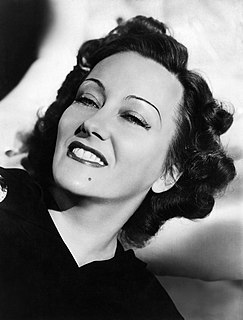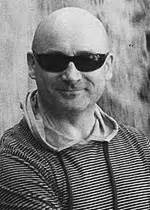A Quote by William Faulkner
Related Quotes
In this moment she felt that she had been robbed of an enormous number of valuable things, whether material or intangible: things lost or broken by her own fault, things she had forgotten and left in houses when she moved: books borrowed from her and not returned, journeys she had planned and had not made, words she had waited to hear spoken to her and had not heard, and the words she meant to answer with. . . .
Her family had of late been exceedingly fluctuating. For many years of her life she had had two sons; but the crime and annihilation of Edward a few weeks ago, had robbed her of one; the similar annihilation of Robert had left her for a fortnight without any; and now, by the resurrection of Edward, she had one again.
I think that's something that we as black people in this country have been robbed of. I compare it to my brother's wife, who is Hispanic. She was born in America but her parents are from Honduras. She speaks Spanish. She knows the culture. But most black people, we were robbed of that. We don't know our heritage.
The world taught women nothing skillful and then said her work was valueless. It permitted her no opinions and said she did not know how to think. It forbade her to speak in public and said the sex had no orators. It denied her the schools, and said the sex had no genius. It robbed her of every vestige of responsibility, and then called her weak. It taught her that every pleasure must come as a favor from men and when, to gain it, she decked herself in paint and fine feathers, as she had been taught to do, it called her vain.
All that Ruby said was so horribly true, she was leaving everything she cared for. She had laid up her treasures on earth only. She had lived solely for the little things of life, the things that pass, forgetting the great things that go onward into eternity bridging the gulf between the two lives and making of death a mere passing of one dwelling to the other. From twilight to unclouded day. ...it was no wonder her soul clung in blind helplessness to the only things she knew and loved.
Occasionally, on screen, Barbara [Stanwyck] had a wary, watchful quality about her that I've noticed in other people who had bad childhoods; they tend to keep an eye on life because they don't think it can be trusted. After her mother was killed by a streetcar, she had been raised in Brooklyn by her sisters, and from things she said, I believe she had been abused as a child. She had lived an entirely different life than mine, that's for sure, which is one reason I found her so fascinating. I think her early life was one reason she had such authenticity as an actress, and as a person.
Before her marriage she had thought that she had love within her grasp; but since the happiness which she had expected this love to bring her hadn’t come, she supposed she must have been mistaken. And Emma tried to imagine just what was meant, in life, by the words “bliss,” “passion,” and “rapture” - words that had seemed so beautiful to her in books.
There was the gate next, which she(Liesel)clung to. A gang of tears trudged from her eyes as she held on and refused to go inside. People started to gather on the street, until Rosa Hubermann swore at them, after which they reversed back whence they came. ~A TRANSLATION OF ROSA HUBERMANN’S ANNOUNCEMENT~ ‘What are you arseholes looking at?
She looked up at him with a smile. The smile broke what was left of his resistance - shattered it. He had let the walls down when he'd thought she was gone, and there was no time to build them back up. Helplessly he pulled her against him. For a moment she clung to him tightly, warm and alive in his arms. Her hair brushed his cheek. The color had come back into the world; he could breathe again, and for that moment he breathed her in - she smelled of salt, blood, tears, and Tessa.
So they were turning, after all - those cameras. Life, which can be strangely merciful, had taken pity on Norma Desmond. The dream she had clung to so desperately had enfolded her. Norma: You see, this is my life. It always will be! (In a whisper) There's nothing else - just us - and the cameras - and those wonderful people out there in the dark. All right, Mr. De Mille, I'm ready for my close-up.
At that moment a very good thing was happening to her. Four good things had happened to her, in fact, since she came to Misselthwaite Manor. She had felt as if she had understood a robin and that he had understood her; she had run in the wind until her blood had grown warm; she had been healthily hungry for the first time in her life; and she had found out what it was to be sorry for someone.
For more than a year, he'd felt destined to marry Isabel Arundell; now, suddenly, he wasn't so sure. He loved her, that was certain, but he also resented her. He loved her strength and practicality but resented her overbearing personality and tendency to do things on his behalf without consulting him first; loved that she tolerated his interest in all things exotic and erotic but hated her blinkered Catholicism. Charles Darwin had killed God but she and her family, like so many others, still clung to the delusion.
Those were the people who made her something, and without them she was different. She'd held on to them and to that old self tenaciously, though. She clung to it, celebrated it, worshipped it even, instead of constructing a new grown-up life for herself. For years she'd been eating the cold crumbs left over from a great feast, living on them as though they could last her forever.
You know, and the fact that Nina Simone had to start playing in clubs and sing because her parents had moved north to support her music education. You know, so she had to sing. She had to make a living 'cause she was supporting her family. So poverty and race put her in this place which, you know, created enormous success, but it's not what her psyche was all about.
Sharp knives seemed to cut her delicate feet, yet she hardly felt them, so deep was the pain in her heart. She could not forget that this was the last night she would ever see the one for whom she had left her home and family, had given up her beautiful voice, and had day by day endured unending torment, of which he knew nothing at all. An eternal night awaited her.






































